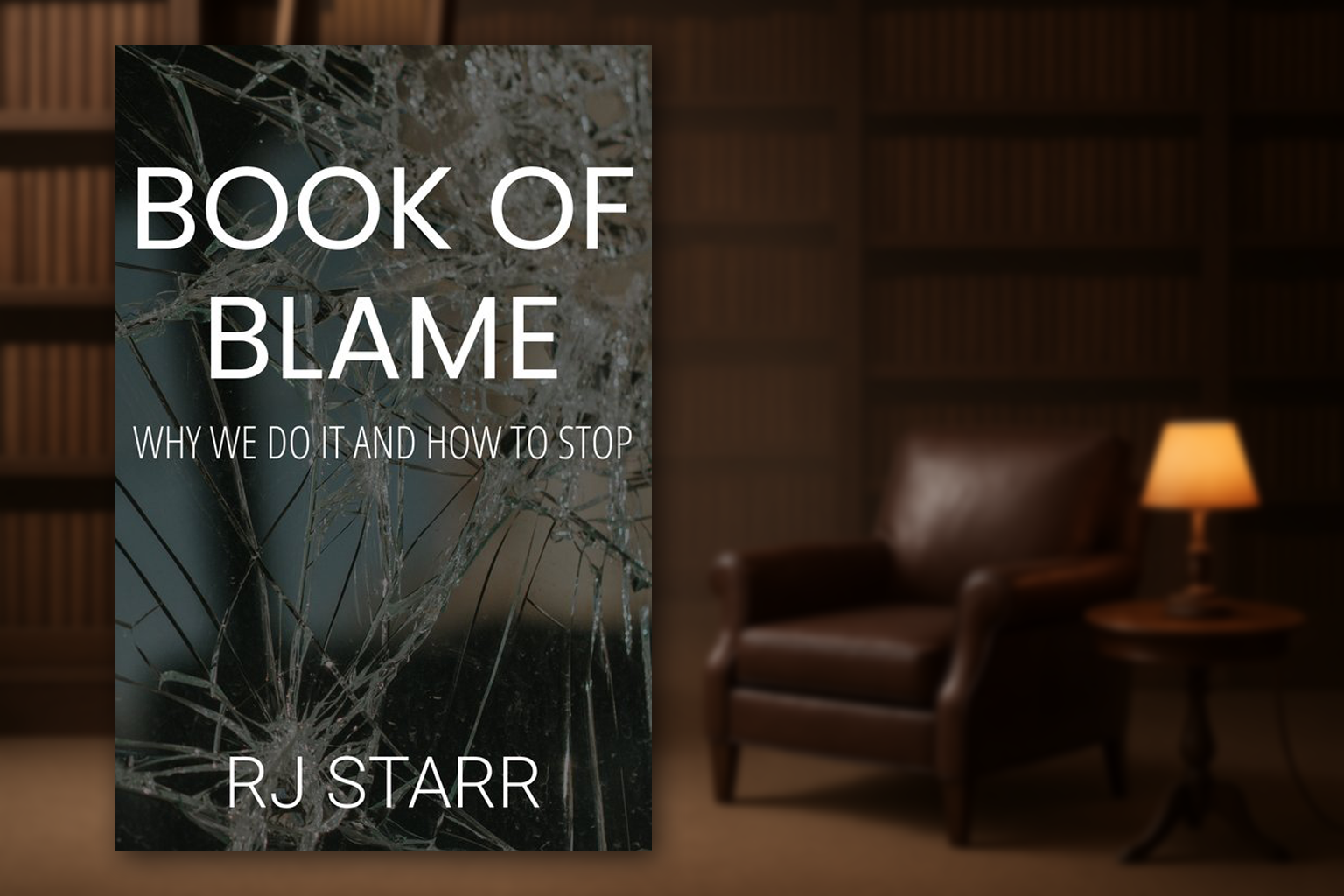Book of Blame
Blame can feel like a reflex—when a project derails or a conversation sours, it’s tempting to zero in on someone else’s misstep. In Book of Blame, I explore how those instincts trace back to our earliest self‑defense mechanisms. Pointing a finger at others or ourselves often serves to shield the ego from discomfort, shame or fear of failure. Yet beneath that veneer of control lies a paradox: the momentary relief we feel quickly gives way to resentment, fractured trust and stalled growth. Recognizing the psychological underpinnings of blame is the first step toward reclaiming genuine agency over our lives.
Humans are wired to protect their self‑image. Evolutionarily, admitting fault could have meant ostracism or loss of resources, so we developed mental shortcuts—blame being one of the most potent. Society reinforces this tendency: narratives that celebrate heroes and villains, cultures that reward scapegoating in politics or the workplace, and even casual conversations that revel in gossip. Book of Blame decodes these influences, showing how external pressures and internal anxieties collaborate to keep us trapped in the blame cycle.
From Blame to Accountability
Shifting away from blame requires more than willpower; it demands cultivating accountability as a core value. Accountability doesn’t mean self‑flagellation or unending guilt. Instead, it offers a pathway to empowerment. When you pause before issuing blame—whether to a colleague, partner or yourself—you open a doorway to curiosity: What happened? What role did I play? How can I respond differently next time? Those questions transform blame from a dead‑end defense into a springboard for insight and action.
In practical terms, accountability grows through small, intentional habits. Book of Blame offers communication techniques designed to replace “You messed up” with “I’d like to understand what went wrong so we can solve this together.” Such language reframes conflict as collaboration, reducing defensiveness and encouraging problem‑solving. Within yourself, the book guides you through reflective exercises—journaling prompts that illuminate your default reactions, and self‑compassion techniques that keep you grounded when you stumble. Over time, you learn to own your contributions without taking on disproportionate blame, creating space for authentic growth.
Rewiring Emotional Responses
At the heart of the blame cycle lie unregulated emotions—shame, anger and fear. Book of Blame delves into strategies for emotional regulation that interrupt those automatic responses. Mindfulness practices, such as naming your feelings before reacting, foster a moment of pause. That brief pause can feel uncomfortable, but it prevents you from lashing out or spiraling into regret. The book also introduces simple breath‑based techniques and grounding exercises proven by neuroscience to calm the sympathetic nervous system, allowing you to choose a measured response rather than an impulsive accusation.
Case studies in Book of Blame illustrate how individuals applied these tools in real life. One manager shared how she replaced her habitual public reprimands with private check‑ins that began by acknowledging her own earlier misunderstandings. The shift in tone defused tension and invited candid dialogue, leading to creative solutions rather than simmering grudges. On a personal level, readers learn how to disrupt self‑blame with compassionate self‑inquiry—asking “What’s the need behind this mistake?” instead of “Why am I so incompetent?”—fostering resilient self‑worth even in the face of setbacks.
Building Healthier Relationships
When blame becomes the default currency of interaction, relationships suffer. Book of Blame shows how replacing blame with accountability and empathy revitalizes connections at home and work. Trust deepens when people feel safe to own mistakes without fear of judgment. Conflict shifts from adversarial to cooperative, opening avenues for genuine collaboration. The book offers role‑play dialogues and conversation frameworks that guide you through difficult discussions—whether addressing a chronic performance issue or resolving a personal conflict—while preserving respect and dignity on both sides.
Ultimately, embracing accountability isn’t just about repairing damage after things go wrong; it’s a proactive choice that enriches every aspect of life. As you integrate the insights and exercises in Book of Blame, you’ll find that your workplace becomes more innovative, your partnerships more supportive and your internal narrative more compassionate. By stepping out of the blame trap, you reclaim the power to learn from challenges, nurture stronger bonds and live with integrity. The journey from pointing fingers to extending hands begins here—and it starts with choosing accountability over blame.

